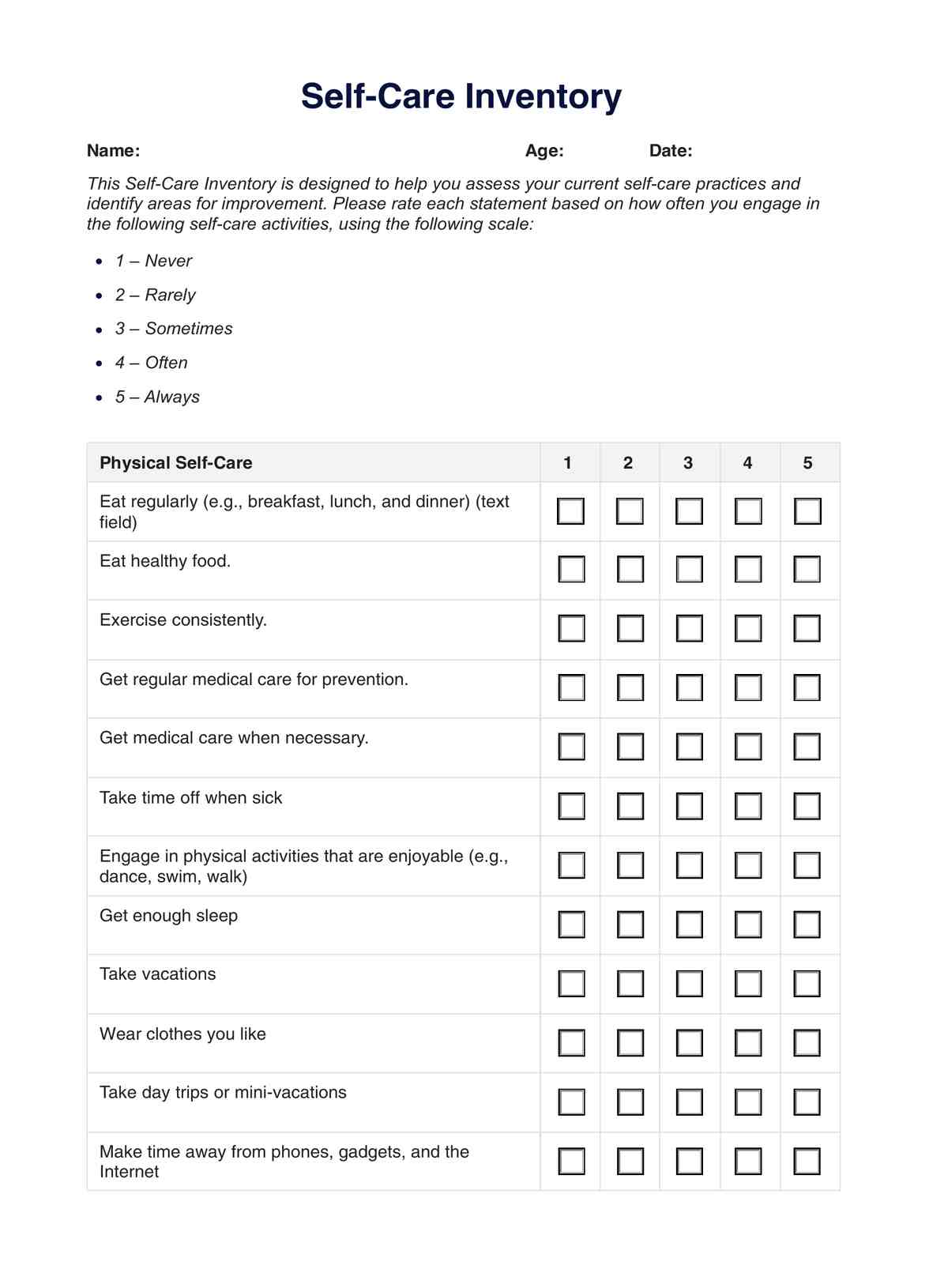A self-care inventory is a tool used to assess and reflect on your health status and personal self-care habits across various aspects of life, helping you identify areas for improvement.

Self-care Inventory
Try our Self-care Inventory Template, designed to help healthcare professionals and patients assess and improve self-care habits. Treat yourself to a better you.
Use Template
Self-care Inventory Template
Commonly asked questions
The 7 pillars of self-care are physical, emotional, intellectual, social, spiritual, environmental, and financial well-being.
Engaging in self-care is important to maintain balance, reduce stress, improve well-being, and enhance your ability to cope with life's challenges.
EHR and practice management software
Get started for free
*No credit card required
Free
$0/usd
Unlimited clients
Telehealth
1GB of storage
Client portal text
Automated billing and online payments











